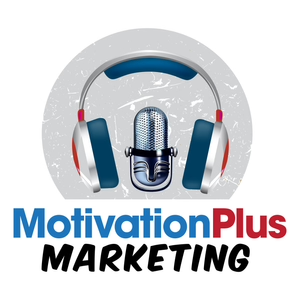
128: The Culture Advantage | Dan Strode
11/30/22 • 35 min
Dan Strode is the author of The Culture Advantage and Group Director of Culture & Strategy for Santander based in Madrid.
Dan explains that the best performing companies are doing things culturally in a certain way and that this became the genesis of his book. The pace of change has never been so fast and yet will never be as slow as it is today. By 2027, 75% of the S&P companies will not be here.
Culture patterns and behaviours are important: One of the most important Dan outlines is the ability to rethink your business model and Kodak is a powerful example of not being able to do that.
Dan describes culture as “the way we do things around here when no one is looking and there is no advantage to be gained.”
Putting people first is essential for any leader. Dan explains that all companies are made up of four key groups; employees, customers, shareholders (financial stakeholders) and finally the communities within which you operate. They create a virtuous circle and by benefitting one you benefit them all.
The younger talent populations value meaning, purpose and culture which means the power is shifting and the need for a positive and inclusive culture is non-negotiable.
What is the leader’s role in culture? Whilst culture is everyone’s responsibility, Dan’s research reveals that leaders have an outsized role to play. Culture can’t be outsourced to someone else as this simply provides evidence that leaders don’t understand the value of culture. Secondly, leaders must be visible in their role modelling including paying attention to inactivity or tolerance of bad behaviours. Always remember...you are being watched closely as the leader.
In the words of Alexander den Heijer, “when I flower doesn’t bloom, you fix the environment in which it grows, not the flower.” Enjoy this episode and grow your own culture for success.
Watch & Subscribe: 👀 https://www.youtube.com/@theleadersenigma/videos
Listen & Subscribe: 🎙️ https://open.spotify.com/show/5NSnRyHzPmyY5OWhGzKU5P
www.leadersenigma.com
Hosted on Acast. See acast.com/privacy for more information.
Dan Strode is the author of The Culture Advantage and Group Director of Culture & Strategy for Santander based in Madrid.
Dan explains that the best performing companies are doing things culturally in a certain way and that this became the genesis of his book. The pace of change has never been so fast and yet will never be as slow as it is today. By 2027, 75% of the S&P companies will not be here.
Culture patterns and behaviours are important: One of the most important Dan outlines is the ability to rethink your business model and Kodak is a powerful example of not being able to do that.
Dan describes culture as “the way we do things around here when no one is looking and there is no advantage to be gained.”
Putting people first is essential for any leader. Dan explains that all companies are made up of four key groups; employees, customers, shareholders (financial stakeholders) and finally the communities within which you operate. They create a virtuous circle and by benefitting one you benefit them all.
The younger talent populations value meaning, purpose and culture which means the power is shifting and the need for a positive and inclusive culture is non-negotiable.
What is the leader’s role in culture? Whilst culture is everyone’s responsibility, Dan’s research reveals that leaders have an outsized role to play. Culture can’t be outsourced to someone else as this simply provides evidence that leaders don’t understand the value of culture. Secondly, leaders must be visible in their role modelling including paying attention to inactivity or tolerance of bad behaviours. Always remember...you are being watched closely as the leader.
In the words of Alexander den Heijer, “when I flower doesn’t bloom, you fix the environment in which it grows, not the flower.” Enjoy this episode and grow your own culture for success.
Watch & Subscribe: 👀 https://www.youtube.com/@theleadersenigma/videos
Listen & Subscribe: 🎙️ https://open.spotify.com/show/5NSnRyHzPmyY5OWhGzKU5P
www.leadersenigma.com
Hosted on Acast. See acast.com/privacy for more information.
Previous Episode

127: Leading Teams in Complexity | Nick Jankel
Nick Jankel is an author, keynote speaker, serial entrepreneur, futurist and leadership theorist.
A transformational team is one that can deliver predictable efficiencies in the old world, plus adapt grow, learn, be purposeful, shape a vision and deliver something new in the new world. Teams are living systems and therefore complex systems whereby the context is more important than the content.
Nick explains that this means that relationships are more important than the products, because the products, services, procedures etc will all invariably have to change. This reinforces the point from Part 1 that the modern leader must not be the problem solver and hero but the leader who creates the environment for their people in teams to evolve, grow, learn and problem solve for themselves as they are normally closest to the issues.
Nick explains that Transformational Teams should have 4 key roles which he bases on the iconic ‘A’ Team. One person can do all four, but usually this demands more than one person, and each role has a shadow side whereby strengths become blockages.
The 4 roles are:
1. The Champion (B.A. Baracus)
2. The Commander (Hannibal)
3. The Creator (Maverick)
4. The Connector (Faceman)
Nick also outlines the 4 characteristics of a Transformation Team which are:
1. Shared vision - it is for the Commander to have a vision of what can be done and
continually makes sense of how to adapt in the journey towards that vision whilst
allowing people the trust and autonomy to adapt as they see fit to reach the shared
vision.
2. Co creativity - Allowing people to have new ideas to be agile, to think, experiment,
fail and be super rigorous with creativity across functions.
3. Collective responsibility – Accountability and dependability with an ability to flex
and renegotiate when things need to change to ensure success.
4. Mutual trust – Trust is the lubricant of transformation to navigate significant change.
Trust was diminished for many organisations during the pandemic as so much was
asked of their people and customers. The organisations that stayed kind and human
centred found themselves in stronger positions than those who treated the pandemic as a purely transactional event.
www.switchonnow.com
Watch & Subscribe: 👀 https://www.youtube.com/@theleadersenigma/videos
Listen & Subscribe: 🎙️ https://open.spotify.com/show/5NSnRyHzPmyY5OWhGzKU5P
www.leadersenigma.com
Hosted on Acast. See acast.com/privacy for more information.
Next Episode

129: The Listening Leader | James Ryan
James Ryan is the President and CEO of Mercedes Benz Financial Services in Canada and this episode is part of our CEO series.
James started his life as a musician, studying Comparative Literature and then moving and working in Germany as an intern for Mercedes Benz in 1995. James has had multiple roles within the organisation leading to his current role as CEO and President responsible for a $5bn portfolio.
James and I explore how his early years as a musician (drummer) have crafted his approach to leadership which has allowed James to be very thoughtful and deliberate as regards his leadership, impact and legacy.
As a CEO James is humble enough to realise that he can’t be expert in all that he oversees, and his style allows him to empower others whereby he can lead by asking questions and increasing his own awareness in order to be the strategic as opposed to the technical operator. James understood the real power in leading by questioning and with that, James’ style of leadership was underpinned by his ability to listen and really hear others.
The Post pandemic environment challenged James’s leadership and questioned his own thinking and norms when it came to the issue of physical office space and flexibility for his teams. James asked his staff a series of questions and quickly understand they need to be a Purpose Driven Organisation and that the office space was not to simply facilitate work but was necessary to create collaboration, connection and camaraderie.
As part of James’ focus on listening, he carried out a series of ‘stay’ interviews to complement what they were hearing in the ‘exit’ interviews. The results were fascinating as it helped the organisation understand what people were motivated about including, purpose, personal growth and the importance of culture which has never been so important in post pandemic environment.
James continues to listen intently to his people which has allowed him to consider how he can measure his leadership by focusing on four key components.
1. Engagement: the experience that leaders create for their people.
2. Involvement: allowing people to own the whole not just their part
3. Trust: a critical component especially post pandemic as people ask themselves if they trust their leader and the organisation within which they work. The higher the trust the higher the performance as a business.
4. Values: values drive value and must be non-negotiable and embedded in all that you do.
James also shares the two questions that he always asks himself when he considers an opportunity in his life. Can I learn something? Can I bring something unique to the table?
Enjoy this great episode.
Watch & Subscribe: 👀 https://www.youtube.com/@theleadersenigma/videos
Listen & Subscribe: 🎙️ https://open.spotify.com/show/5NSnRyHzPmyY5OWhGzKU5P
www.leadersenigma.com
Hosted on Acast. See acast.com/privacy for more information.
If you like this episode you’ll love
Episode Comments
Generate a badge
Get a badge for your website that links back to this episode
<a href="https://goodpods.com/podcasts/the-leadership-enigma-221110/128-the-culture-advantage-dan-strode-25303315"> <img src="https://storage.googleapis.com/goodpods-images-bucket/badges/generic-badge-1.svg" alt="listen to 128: the culture advantage | dan strode on goodpods" style="width: 225px" /> </a>
Copy




